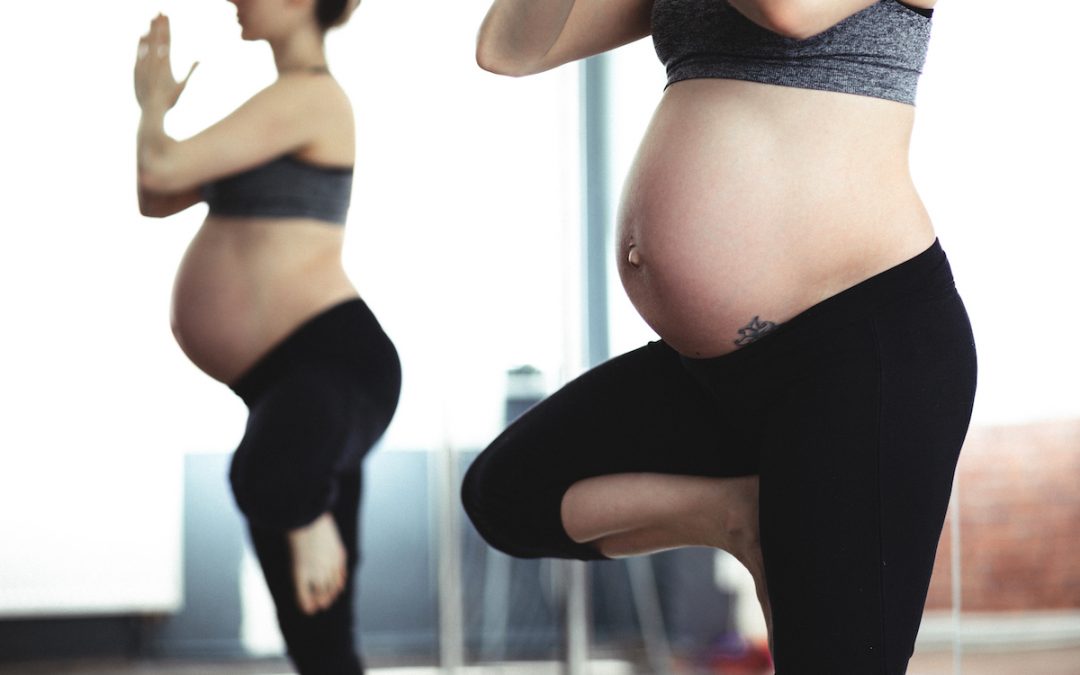By Maureen Pray, NCCPT Certified Personal Trainer
Exercising and staying active while pregnant is one of the best things you can do for you and your baby during your pregnancy.
If you have a normal, healthy pregnancy and have been cleared by your health care professional, it is recommended that pregnant women get 30 minutes of exercise at least 5 times each week. Working out during pregnancy has many health benefits, including reduced risk of preeclampsia, gestational diabetes, and hypertension disorders. Staying active can also reduce pregnancy discomfort, prepare your body for delivery, and help with postpartum recovery.
However, many pregnant women have concerns about what is safe and healthy, in terms of exercise, for them and their baby. Here are some general guidelines to help you and baby stay active and safe.
Do
Talk to your healthcare professional before starting or continuing any exercise program and regularly discuss being active in your prenatal appointments. Your body is constantly changing during pregnancy and you may find that you need to change your workout habits as you move along in your pregnancy.
Choose workouts that are safe and healthy for pregnant women. These include walking, running (if you were a runner prior to becoming pregnant and cleared by your doctor), yoga, spin class, weight training, and swimming. With modifications, all of these workouts can be appropriate for pregnant women.
Wear loose fitting clothing that is comfortable and breathable, and shoes that fit well and are meant for the type of exercise you are doing.
Drink plenty of water before, during, and after your workout. Pregnant women need at least 96 oz (12 glasses) of water a day. If you are exercising, then it is recommended you drink an extra 8 oz for moderate exercise. Increase this even more in hot or humid weather.
Continue core exercises! Many women think they can no longer do core movement while pregnant, but exercising your core during pregnancy can help with post-partum recovery. You will need to make modifications to core exercises at the end of the first trimester, but abdominal work can still be done (and done safely!) during pregnancy.
Listen to your body! You know your body better than anyone else and there may be days where going to your bootcamp class doesn’t feel right and that is ok! Every pregnancy and person is different and you know when your body needs rest and recovery.
Don’t
Don’t participate in workouts where falling is likely possible (i.e. outdoor road cycling), or activities with rapid directional changes (i.e. tennis), or obviously, any contact sports. While your baby is in a safe environment in the uterus, any outside trauma is not worth the risk.
Don’t bounce while stretching or overstretch ligaments. Relaxin is a hormone produced to help prepare the uterus at the beginning of pregnancy and toward the end of pregnancy to relax ligaments around pelvis. Because of this, pregnant women are more susceptible to over stretching or causing injury while stretching.
Don’t hold your breath or exercise to the point of exhaustion. For decades, pregnant women were told to not let their heart rate get above 150 bpm. In more recent years, physicians have agreed that heart rates differ from person to person and a better rule of thumb is the conversation rule. During a workout, a pregnant woman should be able to hold a conversation easily and without difficulty catching her breath. If you are struggling to hold a conversation, turn down the intensity of that exercise or movement until you can easily talk while doing so.
Don’t lay flat on your back during the 2nd and 3rd trimester during exercise. There are many tools and modifications such as laying at an incline, doing the same exercise standing, etc., that a personal trainer or instructor can show you.
Don’t exercise for weight loss during pregnancy. Working out during pregnancy is not the time to set weight loss goals, but working out and staying active can help you achieve weight loss goals after delivery. Staying active during pregnancy is a way for you to relieve discomfort, manage stress and emotions, and maintain a healthy pregnancy for you and baby.
—
For more information on staying active during pregnancy, visit americanpregnancy.org or speak to a certified personal trainer that specializes in prenatal fitness and exercise.
The Fetal Health Foundation is a parent-founded non profit that helps families who are experiencing a fetal syndrome diagnosis. Read our stories of hope

